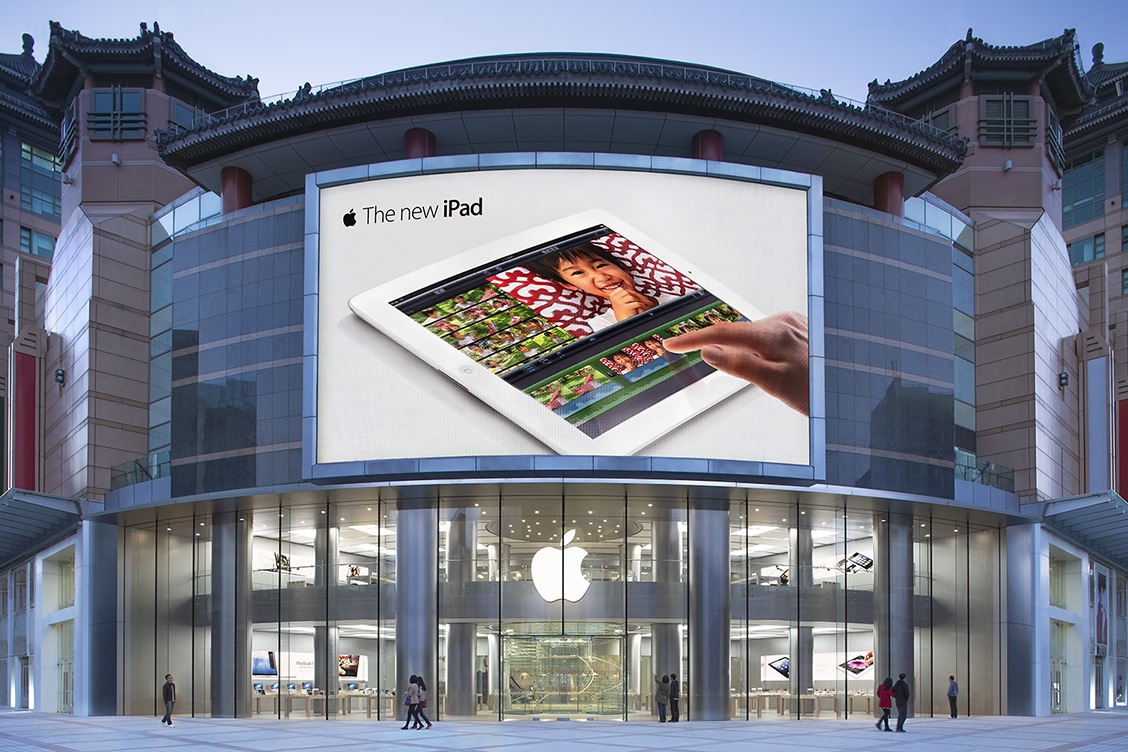Media Report

- The New York Times reports: "If China calls for a boycott of American goods, Chinese workers... could be in trouble... Some Chinese state media outlets have hinted darkly that Beijing could weaponize its hundreds of millions of shoppers should Washington go through with its recent tariff threats and start an all-out trade war. On Weibo, China's version of Twitter, there are sporadic calls to boycott Apple's iPhones. Beijing has done it before, ably punishing Japanese, South Korean and Philippine products and companies over political disputes. A Boycott America plan could be much tougher to pull off. While competition from Chinese-made smartphones is rising, iPhones remain popular. Shopping mall developers, eager for the extra cachet, clamor for Starbucks to open stores. Nike dominates the sportswear market in China. Chevrolet is one of the country's most popular brands."
- CNN reports: "China just threw another curveball at the global recycling industry. The Chinese government says it's extending last year's ban on imports of items such as unsorted paper and some plastics to dozens more types of recyclable materials, including steel waste, used auto parts and old ships. For decades, other countries shipped containers full of scrap and waste to China for recycling. But Beijing stunned the recycling industry last year with its ban on imports of 24 varieties of solid waste. Now, it's adding 32 more types to the list -- half of them at the end of this year, and the other half at the end of 2019. China has billed the ban as a way to reduce environmental damage, but some experts say it could make it worse."
- Eli Lake comments in Bloomberg: "If you Google "Trump," "Nixon" and "China," you will find billions of pixels devoted to comparing the 37th president's breakthrough with Beijing to the potential summit between Donald Trump and Kim Jong Un. The parallel is understandable... In 1972 when Mao Zedong hosted President Richard Nixon in Beijing, Communist China suffered severe international isolation in much the way North Korea does today. Like Mao, Kim espouses a harsh collectivism that imposes misery, famine and death on his people. All of that said, Trump's willingness to meet with North Korea's dictator is not really comparable to the opening of relations between the U.S. and China. The latter was far more important strategically and economically for both countries. What's more, the geopolitical conditions that drove China to go to Nixon were entirely different from those today for the grandson of the "Great Leader" in Pyongyang."
Calendar
- 2018-04-19 China says it's ready to deal with any fallout from trade row with US
- 2018-04-18 U.S. Moves to Block Sales by Chinese Telecom Equipment Makers
- 2018-04-17 In new sign of trade battle, China slaps U.S. sorghum producers with 179 percent deposit
- 2018-04-16 The world is scrambling now that China is refusing to be a trash dumping ground
- 2018-04-15 China's Economy Poised to Brush Off Trump Threats, Debt Campaign
- 2018-04-13 China’s Trade Surplus With U.S. Soars
- 2018-04-12 China’s Commerce Ministry Says Market Opening Is Independent of Trade Dispute
- 2018-04-11 China pledges to allow more foreign investment in financial sector by year-end
- 2018-04-10 China's Xi Jinping says tariffs on car imports will be cut this year
- 2018-04-09 Trump blasts ‘stupid’ trade practices with China
News
- The New York Times In a Trade War, China Might Boycott U.S. Goods. That Could Backfire.
- CNN China refuses to recycle more of the world's trash
- Bloomberg U.S. Weighs Emergency Powers to Curb China Tech Investments
- Business Insider China is obsessed with stopping jaywalkers — and is now spraying them with water
- Financial Times China's bad loan bank shares tumble after chairman investigated
- CNN China is holding up a $44 billion US tech deal
- CNN China challenged Australian warships in South China Sea, reports say
- Reuters U.S. sorghum armada U-turns at sea after China tariffs
- Bloomberg U.S. `Acting Like Bully' With High Tech Restrictions, China Says
- CNBC Cramer points to 'China's ultimate weapon' in the trade war: Boycotts
- The Wall Street Journal In a U.S.-China Tech Battle, Lots of Self-Inflicted Wounds
- Bloomberg France's Poorest Region Looks to China, Not Macron, for Help
- Reuters China nears first Americas refining capacity as CNPC, Petrobras talks mature - sources
Commentary
- Bloomberg Trump Is Not Nixon and North Korea Is Not China
- The Garden City Telegram China, U.S. on different tracks with trains
- Financial Review Australia's alarm at Chinese base in the Pacific is justified
- Bloomberg Trade Wars Don't Faze This U.S.-China Investor
- The Nation China's military drills far more than simply 'sabre rattling'
- Washington Examiner Trump should punish China if talks with North Korea fail, says NRSC chairman
- Bloomberg China's Haven Moment Is Here